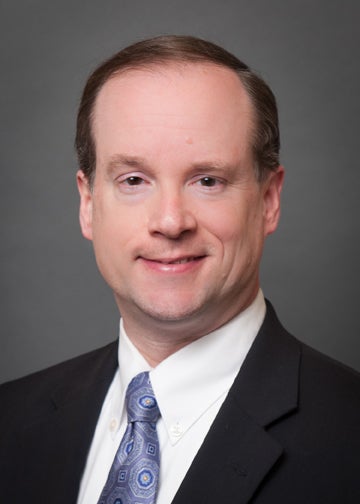JOHN HOOD COLUMN: Dewey’s legacy decimates system
RALEIGH — Just about everyone has an opinion about how to improve education, and it’s usually an opinion passionately held and forcefully argued. It’s not hard to see why. After all, schools are the single-largest expenditure of state taxpayers’ funds. Educational mediocrity is the common denominator of many other social maladies. Most folks have spouses, siblings, parents or other family members in the teaching profession. And everyone has been a student.

John Hood
In one sense, this very-broad, very-public chattering about educational policy can be seen as bad news. Because district-run public schools so long enjoyed an overwhelming monopoly in the delivery of education, issues were thrust into the public discourse that, if related to any other profession, wouldn’t be heard outside of professional circles.
Politicians and political activists have to debate such matters as critical race theory or the proper role of phonics in reading instruction, given the current environment. But in a more diverse and competitive market for education services, parents and educators would gravitate towards the schools that best reflect their preferences and best succeed at teaching students what their parents and educators wish to teach them.
That’s not the world we live in, at least not yet. Educationally, we live in a world created in large part by policymakers and educators inspired by the “progressive education” notions of philosopher John Dewey. The extent to which the public-school establishment venerates Dewey, purveyor of some of the most noxious ideas of the past century, is the extent to which it is destined to fail at its appointed task of imparting knowledge, skills and understanding.
Some years ago, Henry Edmondson, a professor of political science at Georgia College, chronicled Dewey’s wrongheaded approach to education policy (and to many other issues, economic and political) in a book entitled “John Dewey & the Decline of American Education.” His subtitle read, “How the patron saint of schools has corrupted teaching and learning.” The book delivered on that promise.
One of the ironies Edmondson explored is that despite Dewey’s saintly status — or perhaps because of it — is that his ideas are typically encountered secondhand and accepted as doctrine rather than consumed directly from his books and articles. One could devote whole tomes to arguing with Dewey, who was at least prolific, but Edmondson chose to spend much of his book simply laying out Dewey’s stated philosophy and providing extensive quotations. That’s damning enough.
Here are some of the most revealing Deweyisms:
- Dewey argued for the liberation of students, by which he meant “freedom from authority, freedom from the curriculum, [and] freedom from convention.”
- “Boys and girls alike take the same interest in all these occupations, whether they are sewing and playing with dolls, or marble making and carpentry. . . It does not occur to a boy that dolls are not just as fascinating and legitimate a plaything for him as for his sister, until someone puts the idea into his head.”
- “ ‘It thinks’ is a truer psychological statement than ‘I think.’ ”
- Dewey dismissed traditional civics education as a preoccupation with the “established mechanisms” of American government that approaches “idolatry of the Constitution.” He also rejected the foundations of the Declaration of Independence, writing that “self-evident truths have been weakened by historic and by philosophic criticism” and have become “emotional cries” that lack “practical meaning.”
The progressive education movement, essentially founded by Dewey’s disciples, wreaked havoc on schools for decades. Perhaps this should not have come as a surprise, as Edmondson reports:
“The most astonishing symbol of education’s surrealistic separation between theory and practice is this: although he has told millions how to teach elementary and secondary students, John Dewey himself was a poor teacher. He had trouble maintaining discipline in both the secondary teaching posts he occupied, and when he left the latter in Charlotte, Vermont, ‘the townspeople … were glad to see him depart.’ ”
I’ll be glad to see his legacy depart Charlotte, North Carolina — and everywhere else it persists, including our schools of education.
John Hood is a John Locke Foundation board member and author.

